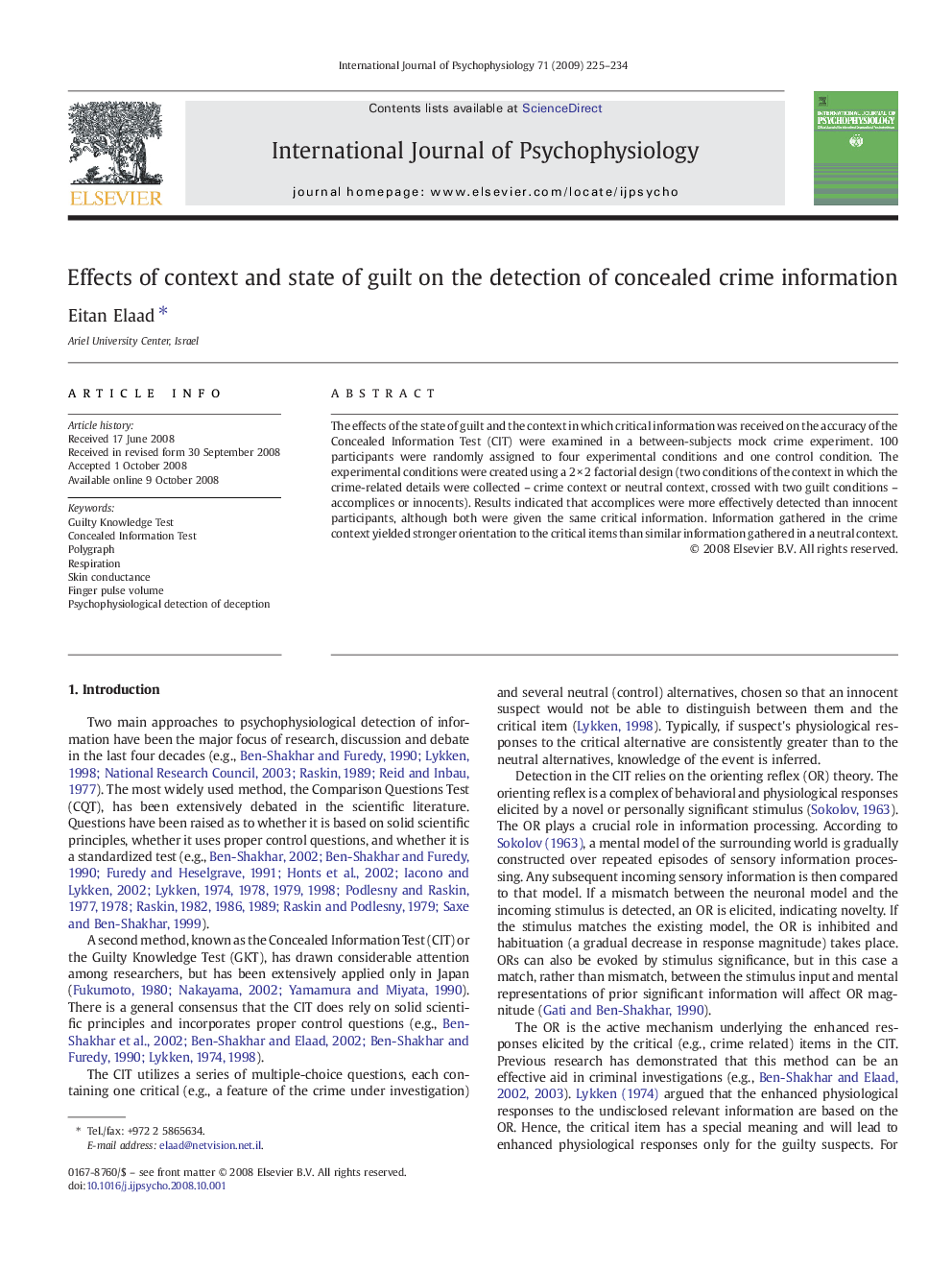| Article ID | Journal | Published Year | Pages | File Type |
|---|---|---|---|---|
| 930335 | International Journal of Psychophysiology | 2009 | 10 Pages |
The effects of the state of guilt and the context in which critical information was received on the accuracy of the Concealed Information Test (CIT) were examined in a between-subjects mock crime experiment. 100 participants were randomly assigned to four experimental conditions and one control condition. The experimental conditions were created using a 2 × 2 factorial design (two conditions of the context in which the crime-related details were collected – crime context or neutral context, crossed with two guilt conditions – accomplices or innocents). Results indicated that accomplices were more effectively detected than innocent participants, although both were given the same critical information. Information gathered in the crime context yielded stronger orientation to the critical items than similar information gathered in a neutral context.
